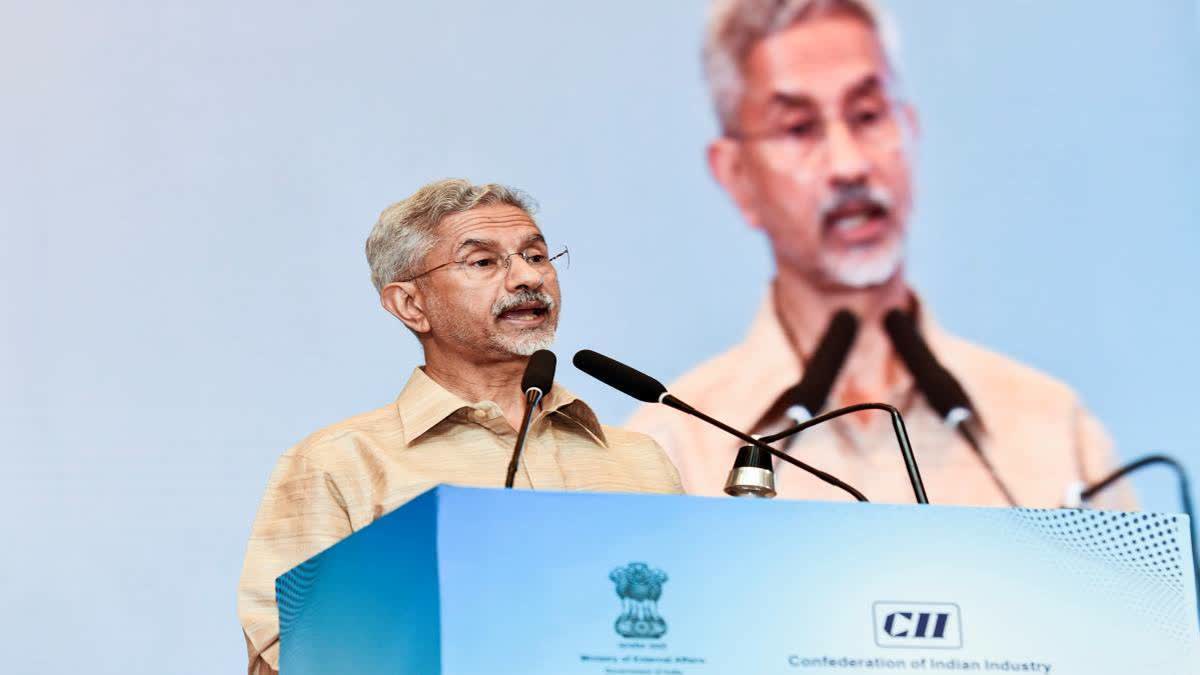New Delhi: External Affairs Minister Dr S Jaishankar on Tuesday said India sees the European Union (EU) and Germany as among the key players in this emerging geopolitical scenario and the strategic awareness that has perhaps grown in recent years in this region is of considerable interest to both India and Germany.
Addressing the Ambassadors Conference of the German Foreign Office in Berlin, Jaishankar said, “There is no question that it is undergoing a profound shift, transitioning from the order that was fashioned after 1945. This is visible in an economic rebalancing accelerated by globalization. It is reinforced by the accompanying political consequences. There is a basis today for talking about multi-polarity, though this is still a work very much in progress".
“At the same time, there is a need to recognize the reality of interdependence and the limitations of our particular national capabilities. In a globalized existence, instability anywhere has consequences everywhere. It is untenable therefore for major nations to limit their horizons. But to act on that, it is necessary to forge partnerships and understandings,” he added.
“That is best done where there is comfort, confidence and convergence. This is what we are seeking to build between India and Germany–a stronger relationship. And that is why we believe Germany too should take a greater interest in the Indo-Pacific, just as we in India seek to do in the Euro-Atlantic,” he further said.
The 7th India-Germany Inter-Governmental Consultations is due to take place in India and will be significant because it will provide directions on key issues at a very crucial time. He said the India-Germany trade stands at $33 billion and mutual investment levels can surely do better. The changes in India and an easier business climate should serve as motivation. The 18th Asia-Pacific Conference of German Business (APK 2024), scheduled to be held in New Delhi in October is therefore of specific importance.
“Defence cooperation must be given greater thought, especially as the Indian private sector expands in that domain. It will require updating export controls as well. We welcome the recent air exercises held between India and Germany and await the impending ship visits to Goa,” Jaishankar added.
“Our Green and Sustainable Development Partnership is making steady progress. We have concluded 38 agreements to the tune of €3.22 billion. It only underlines the potential in this area, especially for green hydrogen and green ammonia,” he pointed out.
It is pertinent to note that there are about 43,000 Indian students in Germany. This number has roughly doubled over the last five years. “But the flow of talent could be very much higher, constituting the kind of living bridge that we have with the US. This could be supplemented by understandings on skills mobility,” the minister added.
